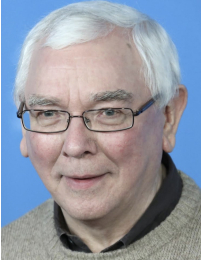On this date in 1945, British filmmaker Terence Davies (pronounced Davis) was born in Kensington, Liverpool, the youngest of 10 children of working-class Catholic parents. In his 2008 documentary “Of Time and the City,” he lamented the emergence of his Liverpudlian contemporaries the Beatles for substituting “Yeah yeah yeah” for “the witty lyric and the well-crafted love song.” (New York Times, Jan. 9, 2009)
Three of his siblings died in infancy and his father, whom he later called psychotic and abusive, died of cancer when he was 7. His deeply religious mother eventually enrolled him in Catholic school, where Davies said he was beaten daily by bullies. He dropped out of school at age 15.
“I was brought up a Catholic and I was a very devout one, too. But when I got into my teenage years and realized I was gay, I tried to live under the tenets of “To be pure in thought, word and deed.’ And it is impossible. I prayed until my knees bled and no succor came. And it’s left a huge hole in me.” (NPR “All Things Considered,” May 20, 2016)
In his early 20s while working as an office clerk, he decided religion was “all lies. Just men in frocks.” But it had a lifelong hold on him. “I don’t like to make a fuss about anything. I always think I’ll get into trouble. I’m obedient and that’s what Catholicism is about. The dreadful thing is you can’t live up to its ideals, so you always fail.” (The Guardian, May 20, 2022)
He enrolled in the Coventry School of Drama, where he wrote the screenplay for what became his first autobiographical short, “Children” (1976). After moving to the National Television and Film School, he completed “Madonna and Child” (1980) and “Death and Transfiguration.” The films became known as the Terence Davies trilogy. A U.S. film critic would write “These films make Ingmar Bergman look like Jerry Lewis.” Another wrote that his films showed he had “an eye for beautiful melancholy.”
He went on to make nine feature films. “Benediction” was the last, opening in theaters in 2022. It told the story of World War I poet and memoirist Siegfried Sassoon. His first two films, “Distant Voices, Still Lives” and “The Long Day Closes,” depict life in Liverpool in the 1940s and ’50s. “The Neon Bible” (1995) and “The House of Mirth” (2000) adapted novels, the latter by Edith Wharton. Gillian Anderson (Agent Scully in the TV series “The X-Files”) won several awards.
As did actress Rachel Weisz for her role in “The Deep Blue Sea” (2011), adapting a Terence Rattigan play. “A Quiet Passion” (2016), based on the life of poet Emily Dickinson, starred Cynthia Nixon (Miranda Hobbes in HBO’s “Sex and the City”) and was critically acclaimed but fared poorly at the box office.
Biographer Michael Koresky wrote that Davies’ sexuality led him to create “one of the great gay filmographies in cinematic history, complexly patterned films in which queerness was detectable in the very contradictions and crosshatches themselves. Yet for anyone who knew Davies himself, the presiding recollection is the infectious joy, the overwhelming pleasure – the childlike delight – that he clearly took in all that he loved: the people, the movies, the music, the books and the poems.” (British Film Institute obituary, Oct. 7, 2023)
He died of cancer after a short illness at age 77 at home in Mistley, Essex. (D. 2023)
PHOTO: Davies at the 66th Berlinale Film Festival in Germany in 2016; photo by Denis Makarenko/shutterstock.com.


